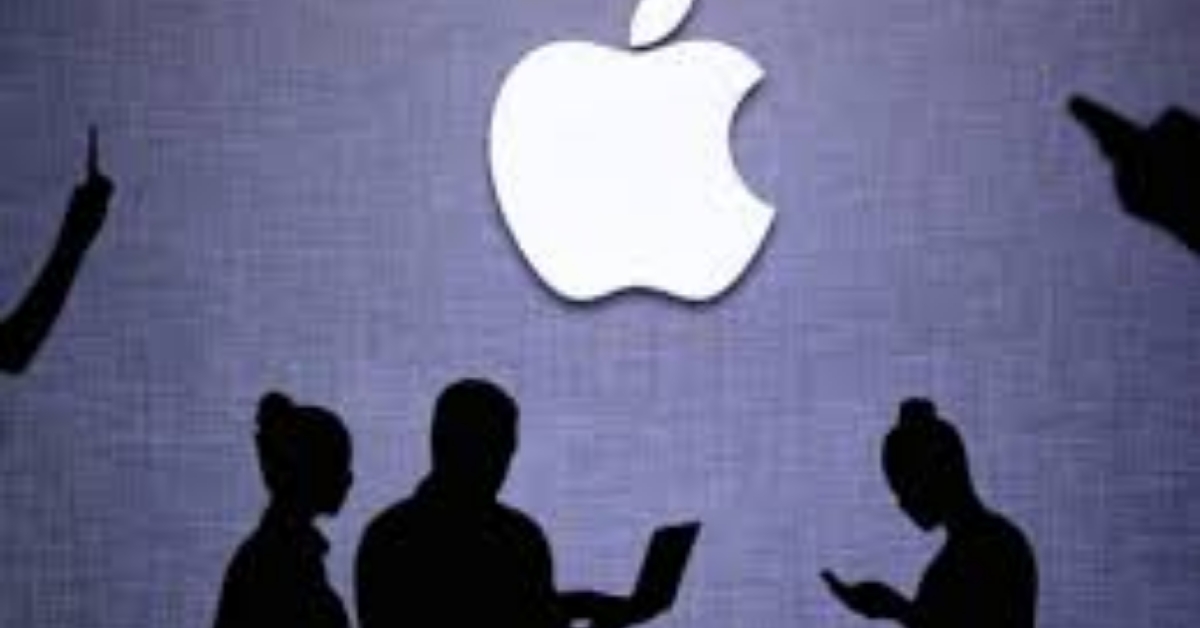Apple Inc. is a multinational corporation headquartered in Cupertino, California, at the heart of Silicon Valley. Renowned worldwide for its cutting-edge innovations, Apple has profoundly shaped the landscape of consumer electronics, software, and services. In this blog, we explore the history, achievements, and future prospects of one of the most iconic companies in the world.

A Brief History of Apple
Apple was founded in 1976 by Steve Jobs, Steve Wozniak, and Ronald Wayne with a mission to make personal computing accessible to the masses. The company introduced its first product, the Apple I, a revolutionary personal computer that began changing the way people interacted with technology.
In 1984, Apple introduced the Macintosh, which further pushed the boundaries of personal computing with its graphical user interface (GUI). Throughout the 1990s, however, Apple struggled with profitability, leading to the temporary departure of Steve Jobs. However, in 1997, Jobs returned and introduced the iMac, marking the start of Apple’s rise to dominance.
The Revolutionary Product Line
iPhone
When Apple launched the iPhone in 2007, it wasn’t just another smartphone—it redefined the industry. Combining a touchscreen interface with internet connectivity and a camera, the iPhone set a new standard for smartphones. Today, the iPhone is Apple’s flagship product and continues to lead the market with each new iteration.
Mac
The Mac has been a staple in personal computing for decades, catering to professionals in design, film editing, and coding. Whether it’s the MacBook Air, MacBook Pro, or the iMac, Apple’s computers are synonymous with premium performance and sleek design.
iPad
Apple introduced the iPad in 2010, changing how people consumed media, played games, and worked on the go. The iPad bridged the gap between laptops and smartphones, offering a more portable and user-friendly alternative to traditional computers.
Apple Watch and AirPods
Apple expanded into wearable technology with the launch of the Apple Watch in 2015. The device serves as a fitness tracker, communication tool, and a convenient way to interact with notifications. AirPods, Apple’s wireless earphones, have become a cultural phenomenon, further integrating Apple’s ecosystem into consumers’ everyday lives.
Services and Software
Apple is not just a hardware company; its software and services play a crucial role in the company’s ecosystem. iOS powers all iPhones, offering a seamless user experience across devices. macOS, iPadOS, and watchOS are equally integral to the Apple ecosystem.
Beyond software, Apple has ventured into services with offerings like iCloud, Apple Music, and Apple TV+. These services have enabled Apple to diversify its revenue streams, allowing users to access content and storage solutions across multiple devices.
Apple’s Commitment to Innovation
Apple has a reputation for being at the forefront of technological innovation. The company continually invests in research and development to create new products and improve existing ones. The introduction of Apple Silicon, such as the M1 and M2 chips, showcases the company’s commitment to boosting performance while enhancing energy efficiency.
With the rise of augmented reality (AR) and artificial intelligence (AI), Apple is poised to lead the next generation of computing experiences. The launch of Vision Pro in 2023 highlighted Apple’s vision for spatial computing, blending the digital and physical worlds.
Sustainability and Environmental Initiatives
Apple is also committed to being a sustainable company. The company aims to make all its products from 100% recycled materials and is actively working to reduce its carbon footprint. Apple’s production facilities have already achieved carbon neutrality, and the company aims to be completely carbon neutral across its supply chain by 2030.
Moreover, Apple’s packaging and hardware designs are increasingly environmentally friendly, using fewer materials and renewable energy.
Apple’s Influence and Future
Apple’s influence goes beyond just technology; it has become a symbol of luxury, innovation, and modern culture. The company has a dedicated fan base that eagerly anticipates every new product announcement. Apple’s focus on user experience, sleek design, and technological advancement keeps it ahead of competitors.
Looking to the future, Apple is expected to continue its dominance in consumer electronics while exploring new avenues like electric vehicles and healthcare technology. As the company branches into more sectors, its ecosystem of devices, services, and software will continue to expand.
Conclusion
Apple Inc. has become an integral part of modern life, shaping how we communicate, work, and interact with technology. From the revolutionary iPhone to its pioneering software services, Apple’s dedication to innovation and quality has cemented its place as a global leader in technology. With a future that promises even more groundbreaking developments, Apple is well-positioned to remain at the forefront of the industry.



















